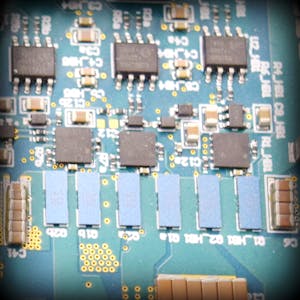Electric Power Systems
The rapid advancement in technology and the growing emphasis on sustainable energy have spotlighted the importance of understanding electric power systems. Whether you're an engineering student, a professional in the energy sector, or simply someone curious about how electricity powers the world, Coursera's "Electric Power Systems" course offers a comprehensive overview of this crucial field. Here’s an in-depth look at what this course entails and why it could be a valuable addition to your learning journey.
Course Overview
"Electric Power Systems," offered by the University at Buffalo and SUNY, is an online course available on Coursera. It is part of the larger series "Power Electronics Specialization," which delves into various aspects of electrical engineering. This particular course provides a foundational understanding of how electric power systems operate, covering essential topics from the basics of electricity to the complexities of modern power grids.
Key Topics Covered
Fundamentals of Electricity: The course starts with a solid grounding in the basic concepts of electricity, including voltage, current, resistance, and power. Understanding these fundamental principles is crucial for grasping more complex topics later on.
Power Generation: Various methods of generating electric power are explored, such as fossil fuels, nuclear energy, and renewable sources like wind and solar power. This section highlights the advantages and challenges associated with each method, providing a balanced perspective on the current energy landscape.
Transmission and Distribution: The journey of electricity from power plants to consumers involves intricate transmission and distribution networks. The course explains how high-voltage transmission lines and substations work together to deliver electricity efficiently and reliably.
Power System Components: Key components such as transformers, circuit breakers, and protective relays are discussed in detail. Understanding these components is essential for anyone involved in the design, maintenance, or management of electric power systems.
Grid Stability and Control: Maintaining the stability of the power grid is a critical challenge, especially with the integration of renewable energy sources. The course covers various control mechanisms and technologies used to ensure a stable and reliable power supply.
Future Trends and Challenges: The course also addresses emerging trends and challenges in the power industry, such as smart grids, energy storage solutions, and the increasing role of digital technologies in power system management.
Join Free: Electric Power Systems
Learning Experience
One of the standout features of this course is its blend of theoretical knowledge and practical insights. The instructors, with their extensive academic and industry experience, present complex concepts in an accessible and engaging manner. The course includes video lectures, readings, quizzes, and hands-on projects that allow learners to apply what they've learned.
Who Should Enroll?
This course is ideal for:
- Engineering Students: Those pursuing degrees in electrical or energy engineering will find this course particularly beneficial as it covers core concepts that are fundamental to their studies.
- Industry Professionals: Engineers and technicians working in the power sector can update their knowledge and skills, especially with the latest trends and technologies.
- Energy Enthusiasts: Individuals with a keen interest in how electricity powers our world will gain a deeper appreciation and understanding of the systems involved.
Why Take This Course?
Comprehensive Curriculum: The course offers a thorough overview of electric power systems, making it suitable for both beginners and those looking to refresh their knowledge.
Flexibility: Being an online course on Coursera, it offers the flexibility to learn at your own pace, making it easier to fit into busy schedules.
Expert Instruction: The course is taught by experienced faculty from the University at Buffalo and SUNY, ensuring high-quality content and instruction.
Practical Insights: The inclusion of real-world examples and practical applications bridges the gap between theory and practice, enhancing the learning experience.
Conclusion
In an era where electricity is the backbone of modern civilization, understanding how electric power systems work is more important than ever. Coursera's "Electric Power Systems" course provides a robust foundation in this field, equipping learners with the knowledge and skills to navigate and contribute to the evolving energy landscape. Whether you're looking to advance your career or simply satisfy your curiosity, this course is a valuable resource that can help you achieve your goals.
For more information or to enroll in the course, visit the Coursera course page. Happy learning!





















No comments